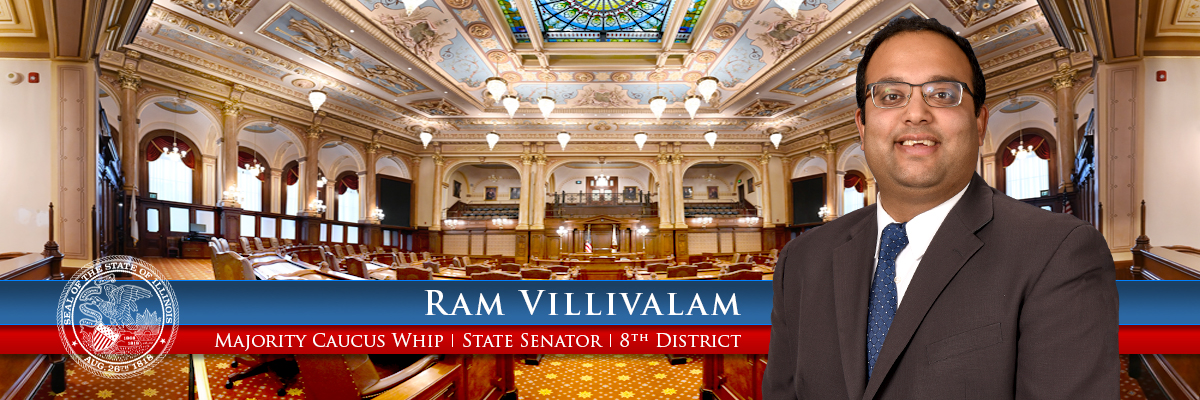Originally published in Chicago Tribune, December 8, 2020.
Several Illinois state senators are calling on Gov. J.B. Pritzker to introduce a new moratorium on utility disconnections, as Illinois enters the often sub-zero winter months and the COVID-19 pandemic and its associated economic impact continue.
The group of seven state lawmakers, who represent north and northwest suburbs, sent a letter dated Nov. 30 to Pritker acknowledging the current voluntary stay on shutoffs that some utility companies are adhering to, but they want the governor to make it less discretionary.
“We are in the midst of an unprecedented health and economic crisis – with small business owners and employees especially hard hit by layoffs and loss of income. During this pandemic and its associated economic downturn, no one should have to face the threat of a winter without heat or lights. That only increases the risk of illness, injury, and fires,” read a portion of the letter signed by state senators Ram Villivalam, D-Chicago, Laura Fine, D-Glenview, Celina Villanueva, D-Chicago, Robert Peters, D-Chicago, Ann Gillespie, D-Arlington Heights, Julie A. Morrison, D-Deerfield, and Adriane Johnson, D-Buffalo Grove.
“We appreciate that the governor has continued his moratorium on evictions, but in Illinois, a home without heat is not a safe home in the winter,” Fine said in a news release announcing the senators’ request to the governor.
The elected leaders said in the letter that Illinois needs to ensure that everyone continues to have a safe place to live until the novel coronavirus, which causes the COVID-19 disease, crisis has passed.
[Most read] Second stimulus check updates: Trump offers $600 direct payments, but would eliminate $300 unemployment boost in COVID-19 relief plan »
“Due to the deadly nature of the COVID-19 pandemic, and as we advocate for a much needed stimulus package from the federal government, we need to take every action possible as a state to ensure the safety and health of our residents, including the avoidance of any utility disconnections,” Villivalam said. “This will be among the most difficult holiday seasons that our families and our children will experience. Let us take one large burden and uncertainty off the table for our constituents.”
A spokeswoman for the governor’s office told Pioneer Press that, since the beginning of the COVID-10 pandemic, the Pritkzer administration and the Illinois Commerce Commission have “worked vigorously to protect the wellbeing and livelihood of all Illinois residents.”
But she said Pritker’s authority in this situation is limited.
“While Governor Pritzker does not have the authority to fully suspend utility disconnections, the administration has requested that the ICC do all it can to ensure that residents and businesses continue to have access to utilities,” said spokeswoman Jordan Abudayyeh.
She said a moratorium on disconnections for such utilities as electric, natural gas, water and sewer utility service has voluntarily been extended by several state regulated utilities – like ComEd, Nicor and Peoples Gas – through March 31, 2021 for some low-income residential customers, and those who self-report to utilities that they are experiencing financial or COVID-19 hardship.
Though the senators acknowledged that many utility companies have already voluntarily increased protections against shut-offs this winter, they believe that the rule needs to include all utility companies, and that this is too big of an issue to rely on voluntary compliance.
“We’re seeing people struggling,” Villanueva said. “While we appreciate that some companies have already stepped forward to offer more protections, we need to ensure that no Illinois family has to worry about losing access electricity or gas this winter.”
The senators said collectively that shut-offs could disproportionately impact families that were already have financial difficulties pre-pandemic, and now would hurt households directly affected by fallout from COVID-19.
The governor’s office advises residential customers to reach out to the utilities if residents can’t pay their bills.
“The ICC has advised customers who anticipate being unable to pay their utilities to call their providers and verbalize their hardship situation in advance of service being shut off. No documentation or written proof is needed,” said Abudayyeh.




